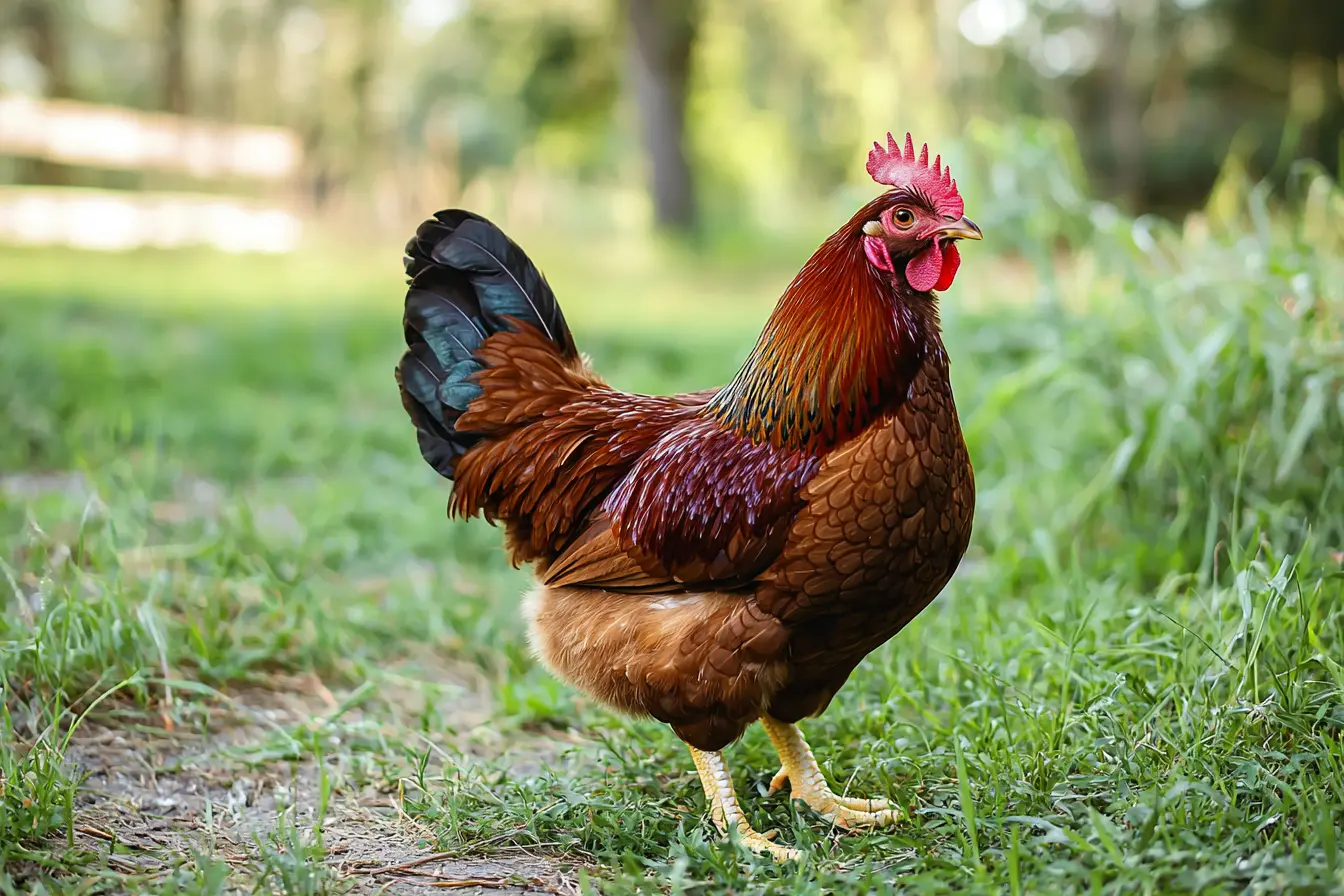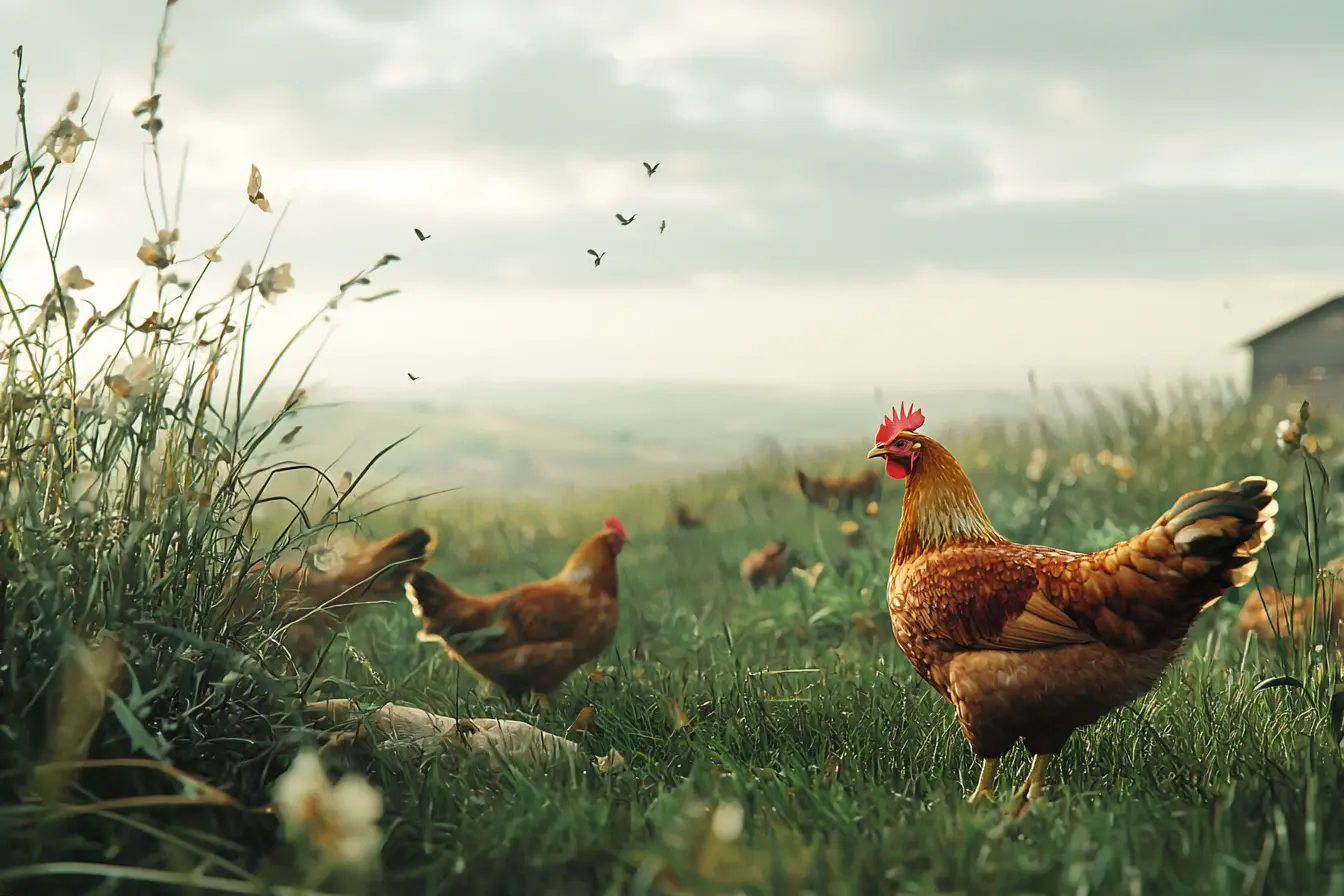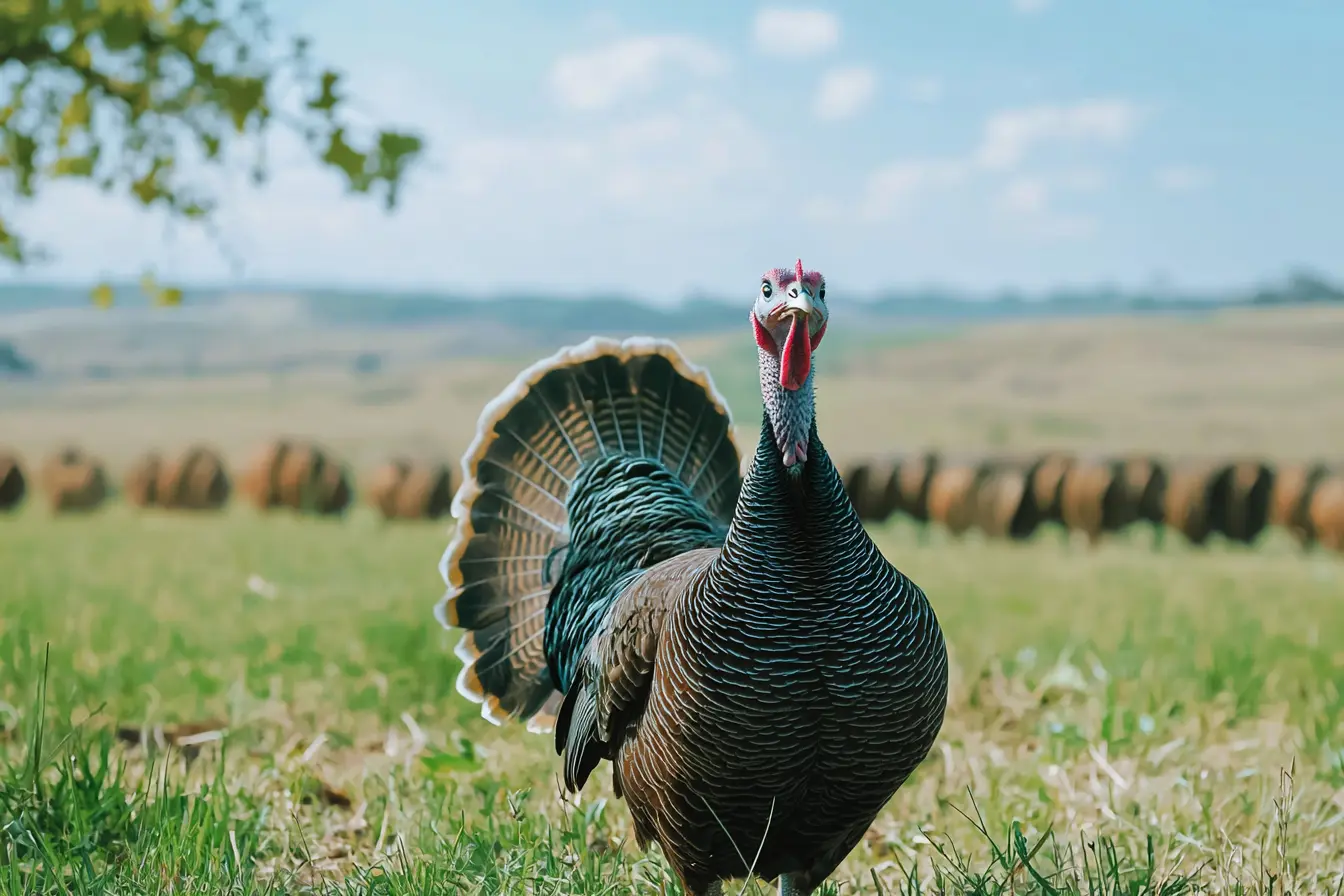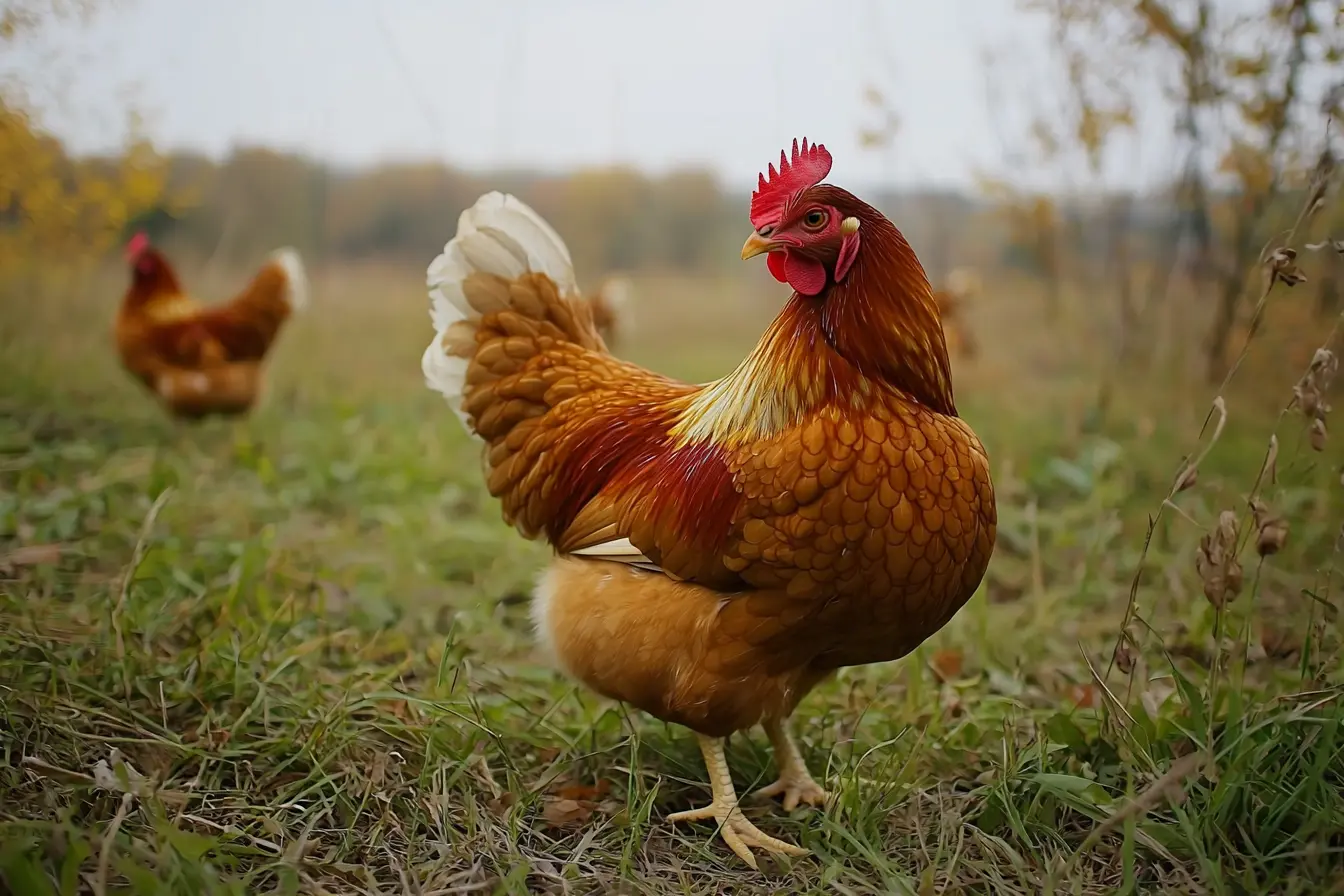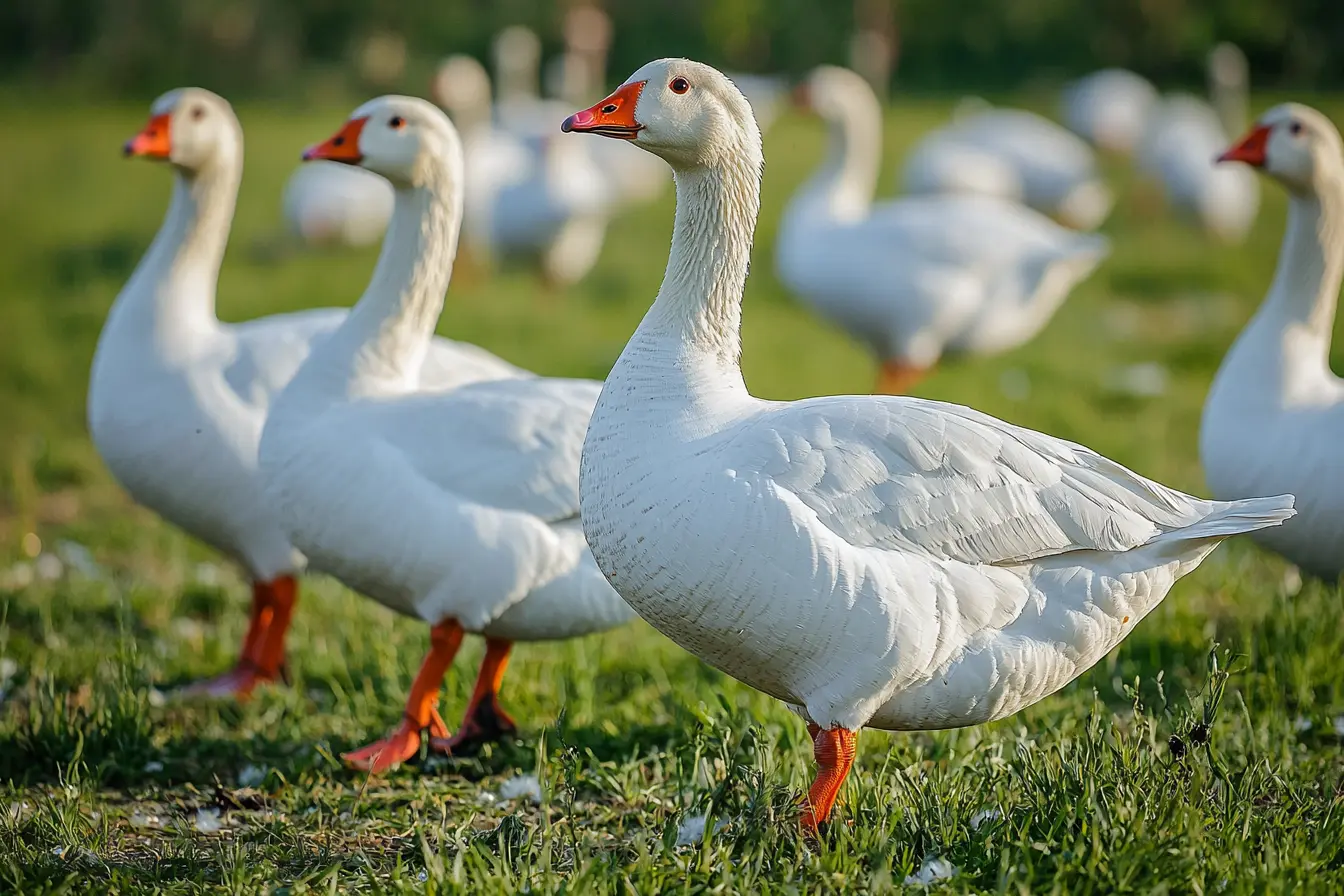
A Complete Guide to Keeping Embden Geese
Embden geese are a fantastic choice for poultry enthusiasts in the UK, known for their striking white plumage, impressive size, and friendly yet protective nature. Whether you're considering keeping them for their meat, as guardians for your property, or simply as charming additions to your flock, this guide will provide everything you need to know about caring for Embden geese.
Introduction to Embden Geese
Embden geese, also spelled "Emden," originate from Germany and are one of the oldest and most popular domestic goose breeds. They are known for their pure white feathers, blue eyes, and orange beaks and legs. Embdens are primarily kept for their meat production, but they also make excellent pets and lawn mowers, thanks to their voracious grazing habits.
Key Characteristics:
- Lifespan: 10-20 years with proper care
- Size: Large (ganders weigh around 10-14 kg; geese 8-9 kg)
- Temperament: Calm, friendly, and protective
- Egg Production: 30-50 large white eggs per year
- Meat Production: Highly valued for their lean, tender meat
- Hardiness: Adaptable to the UK climate, including cold winters
Why Choose Embden Geese?
Embden geese are an excellent choice for many reasons:
- Meat Production: They grow quickly and produce high-quality meat with minimal fat.
- Guardianship: Their loud honk and alert nature make them great deterrents against intruders and predators.
- Friendly Disposition: With regular handling, they can become affectionate and bond with their keepers.
- Efficient Grazers: They can help maintain grassy areas by grazing on weeds and grass.
- Low Maintenance: Once settled, they require little special care beyond basic husbandry.
- Adaptable to UK Weather: Embdens are hardy birds that thrive in various weather conditions.
Housing Requirements for Embden Geese
Providing a suitable environment for your geese is crucial to their health and well-being.
Shelter Requirements
- Size: Allow at least 1 square metre per goose inside the shelter.
- Bedding: Use straw, wood shavings, or hay for comfort and insulation.
- Ventilation: Ensure good airflow to prevent damp conditions, which can cause respiratory issues.
- Protection: Geese are vulnerable to foxes and other predators; secure fencing and predator-proof housing are essential.
- Low Entrance: Geese prefer walking rather than climbing into housing.
Outdoor Space
Embden geese are active birds that need plenty of outdoor space to thrive.
- Minimum Space: At least 20 square metres per goose, but more space is ideal for grazing.
- Fencing: A fence of at least 1 metre high is recommended to keep them contained and safe.
- Water Access: A pond, trough, or kiddie pool for bathing and drinking is essential for maintaining clean feathers.
Tip: Rotate grazing areas to prevent overgrazing and maintain healthy pasture.
Feeding Your Embden Geese
Proper nutrition is essential for healthy growth and egg production.
Essential Nutrition
- Grazing: Geese thrive on fresh grass and should have access to grazing throughout the day.
- Pelleted Feed: Provide a balanced waterfowl or goose pellet with essential vitamins and minerals.
- Grain Supplements: Offer wheat, oats, and barley in moderation.
- Fresh Greens: Provide vegetables such as lettuce, cabbage, and spinach.
- Grit: Helps geese digest their food effectively.
- Fresh Water: Ensure constant access to clean water for drinking and washing food down.
Feeding Tip: Avoid processed foods, bread, and salty items, as these can be harmful to geese.
Health and Common Concerns
Embden geese are generally hardy, but like all animals, they require regular health checks and preventative care.
Common Health Issues:
- Angel Wing: A condition caused by excessive protein in the diet; provide a balanced diet and monitor wing development.
- Bumblefoot: Caused by rough surfaces; ensure their environment is soft and dry to prevent infections.
- Parasites: Regularly check for internal and external parasites such as worms and lice.
- Respiratory Infections: Prevent damp housing conditions and ensure proper ventilation.
Preventative Care:
- Conduct routine health checks for signs of illness.
- Keep their living environment clean and dry.
- Provide a nutritious and well-balanced diet.
Embden Goose Behaviour and Handling
Embden geese have a calm yet assertive temperament and can become very friendly with regular handling.
- They are naturally curious and enjoy human interaction if raised from a young age.
- During the breeding season, ganders (males) can become protective and territorial.
- They are excellent foragers and enjoy exploring their environment.
- Geese form strong bonds and should be kept in pairs or small groups for their well-being.
Handling Tip: Start handling your geese from a young age to encourage trust and reduce aggression.
Egg Production and Collection
While Embden geese are not prolific layers, they can provide a good number of large eggs during the laying season.
Egg-Laying Habits
- Geese typically start laying eggs at around 8-10 months of age.
- Expect around 30-50 eggs per year, usually during spring.
- They may become broody and hatch their eggs naturally if provided with a suitable nesting area.
- Eggs should be collected daily to prevent damage or predation.
Egg Collection Tip: Provide secluded nesting boxes with plenty of bedding to encourage laying.
Winter Care for Embden Geese
Embden geese are well-suited to the UK's colder climate, but a few extra precautions are necessary in winter.
- Shelter Insulation: Provide additional straw or hay for warmth.
- Water Management: Prevent water sources from freezing by regularly changing or using heated waterers.
- Extra Feed: Increase their caloric intake to help them maintain body heat.
- Foot Care: Ensure they have dry areas to prevent foot infections from wet or frozen ground.
Winter Tip: Provide windbreaks and sheltered areas in their enclosure to protect from cold winds.
Breeding and Raising Goslings
Embden geese can be excellent parents and are relatively easy to breed if provided with the right conditions.
Breeding Tips
- The breeding season typically starts in early spring.
- Provide a quiet, comfortable nesting area with soft bedding.
- Incubation lasts around 28-32 days, with the female doing most of the brooding.
- Goslings need warmth, fresh water, and access to special gosling starter feed.
Growth Rate: Goslings grow rapidly and can be introduced to grazing areas within a few weeks.
Legal Considerations in the UK
Before keeping Embden geese, it’s important to be aware of legal requirements and responsibilities.
- DEFRA Regulations: Ensure compliance with any biosecurity measures, particularly in times of avian flu outbreaks.
- Local Council Regulations: Check for any restrictions regarding the keeping of poultry in your area.
- Neighbour Considerations: Geese can be noisy, so it’s a good idea to inform neighbours and manage noise levels responsibly.
Conclusion
Embden geese are a fantastic addition to any smallholding or backyard flock in the UK. Their friendly disposition, excellent meat production, and practical grazing habits make them a rewarding choice for poultry keepers.
With proper housing, nutrition, and care, your Embden geese will thrive and provide companionship, protection, and productivity for years to come.
Contents
- Introduction to Embden Geese
- Why Choose Embden Geese?
- Housing Requirements for Embden Geese
- Feeding Your Embden Geese
- Health and Common Concerns
- Embden Goose Behaviour and Handling
- Egg Production and Collection
- Winter Care for Embden Geese
- Breeding and Raising Goslings
- Legal Considerations in the UK
- Conclusion
Tags
Vets near you
Speciality vets
- Aquatics vet specialists
- Birds vet specialists
- Camelids vet specialists
- Cats vet specialists
- Cattle vet specialists
- Deer vet specialists
- Dogs vet specialists
- Equines vet specialists
- Exotic vet specialists
- Goats vet specialists
- Pigs vet specialists
- Poultry vet specialists
- Sheep vet specialists
- Small Mammals vet specialists
- Wild vet specialists
Vet facilities
- Accessible by public transport
- Blood testing
- Car park nearby
- Client car park
- Dentistry
- Diagnostic imaging
- Disabled public access
- Flea and worm treatments
- Microchipping
- Mobile services
- Neutering
- Open at weekends
- Out-of-hours service
- Referral interests
- Referrals only
- Street parking outside
- Toilets available
- Vaccinations
